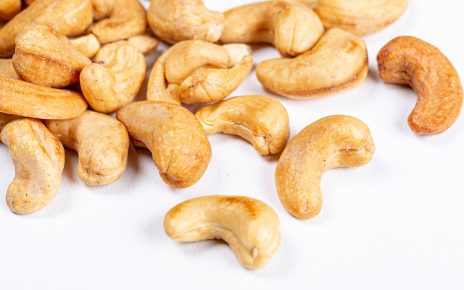Is Ace K Keto Approved?
Is acesulfame k Keto Friendly? If you plan to or are currently on the keto diet, one major rule to follow every time to ensure success is to avoid sweeteners like sugar. People trying to lose weight now seek ways to replace sugar with a keto sweetener, and one of the most commonly used artificial sweeteners used today is Acesulfame Potassium.
Acesulfame k or E950 as it is referred to in Europe is an artificial sweetener that is 200 times sweeter than regular sucrose (even though it is said to possess a bitter aftertaste like saccharin). Since it is much sweeter than regular sugar, only a small amount is needed to equal the sweetness that sugar gives.
It belongs to the class of nonnutritive sweeteners, which at first glance may make it an ideal food product. Its appearance at room temperature is that of a white crystalline powder.
As the name suggests, Acesulfame potassium contains acetoacetic acid and potassium salt, but the potassium content is negligible and does not add to the level of ingested potassium when added to food.
Although Acesulfame potassium is commonly used in food and beverages to enhance flavor and sweeten food, there are disagreements about its continued usage because of perceived health risks.
What Foods Contain Acesulfame Potassium?
Acesulfame potassium is popularly used in candies, sweeteners, other food additives, and over 4000 products consumed worldwide. Some other products that make use of this artificial sweetener include alcoholic beverages, dairy products, baked goods, and chewing gum.

Acesulfame potassium is also very versatile. It is no wonder then that it is used in a variety of food and beverage. It is also widely used in baked goods since it is stable under elevated temperatures and other food processing conditions that involve heat as it is able to retain its sweetness.
The use of acesulfame potassium is also popular in breakfast cereals, condiments, jam, desserts, ice cream, and tabletop sweeteners. To ascertain if a product contains this artificial sweetener, it is necessary to know the other name substitutes for Acesulfame potassium including Ace-K, Acesulfame K, and E950, which is used in Europe.
The Advantages of Acesulfame Potassium on the Keto Diet
One of the most apparent advantages that is associated with the use of Acesulfame potassium on a keto diet is that one can still enjoy the sweetness of foods, and other beverages or drinks without the need to consume carbohydrates, and calorie dense sweetened foods.
In Europe and in the United States, Acesulfame potassium is considered safe for use. In fact, the Food and Drug Administration (FDA) in 2003 approved the use of this artificial sweetener as a general purpose sweetener but gave restriction in its being used with poultry.
Acesulfame potassium also has a zero glycemic index, suggesting that it is less likely to result in a sudden rise in blood sugar when consumed. People with diabetes who are on the keto diet may thus benefit from using Acesulfame potassium since eating foods with a low glycemic index has been linked to the management of diabetes.

It is one thing to plan to start the keto diet, and it is another thing to have the necessary items to make the journey to ketosis a successful one. Another positive benefit that makes Acesulfame potassium a good choice for the keto diet is that it is readily available for use. The foods and beverages that contain Ace-K are also readily available for purchase in stores and online.
Acesulfame Potassium Keto Guidelines: How Much?
The Food and Drug Administration (FDA) has set the acceptable daily intake level of Acesulfame potassium at 15 milligrams per kilogram of body weight. Recall that Acesulfame potassium is 200 times sweeter than sucrose and that only a small amount should be added to the diet to achieve the same taste that sugar will give. Given the acceptable daily intake level, an individual will have to consume about two gallons of beverages containing Acesulfame potassium to meet this level.
Can individuals safely exceed the FDA recommended ADI for Acesulfame potassium without experiencing any adverse effect? If the recommended value is exceeded only on a few occasions, the individual may not experience any physiological impact; however, it should be noted that it will be difficult to exceed this value on a daily basis. It is best to stick with small amounts of these artificial sweeteners on a keto diet rather than consuming a large quantity which may adversely affect health.
Possible Health Risks Associated With Using Acesulfame Potassium on the Keto Diet
The use of artificial sweeteners on a low carb diet has remained a subject of controversy as many authorities seem to have a different opinion on their efficiency in health. While some promote Acesulfame potassium while others claim that it may prevent an individual from reaching ketosis and produce health complications.
Artificial sweeteners have also been implicated in increasing appetite, and Acesulfame potassium is not any different. Acesulfame potassium in high concentrations is capable of stimulating an individual to consume more, and in the end, instead of achieving ketosis, weight gain is experienced.

The mechanism of action of a chemical sweetener on the brain is simple -they trigger centers that regulate appetite that make the individual feel the need to consume more food, often as a result of their sweet taste.
Others have also raised specific concerns about the potential of Acesulfame potassium causing cancer in humans. Acesulfame potassium is believed to contain a carcinogen called methylene chloride that may cause a number of clinical conditions including nausea, depression, severe headaches, and cancer when exposed to it for long periods.
There have also been reports of visual disturbances, mental confusion, and kidney problems associated with using Acesulfame potassium. In fact, because of the concerns raised by experts, the Centre for Science in the Public Interest suggests that Acesulfame should be avoided.
In another study, it was observed that long term use of the artificial sweetener Acesulfame potassium might alter neurometabolic functions and worsen insulin resistance. Although these tests were carried out using male mice, the test suggests that excessive use of Acesulfame potassium may affect cognitive function in the long run.

There are also some studies that indicate that combining Acesulfame potassium with a low carbohydrate diet may also affect cognitive function in rats. This study suggests that restricting one’s diet while using this sugar substitute may not yield good results.
Minor secondary effects may include side effects like flatulence.
However, we are hopeful that acesulfame’s aftertaste will help retard overconsumption and possible negative health effects. Read more on common keto diet myths.
Coke Zero, for instance, is one such diet soda that uses this sugar alternative. Many other soft drinks may combine this with another non nutritive sweetener such as aspartame.
Conclusion: Is Acesulfame K A Keto-Friendly Sweetener?
There are obviously many advantages that come with the use of Acesulfame potassium that makes it a suitable replacement for table sugar. Acesulfame potassium, however, is associated with a number of negative side effects and it may be better to stick with natural sweeteners instead while on a ketogenic diet. Not only do these natural sweeteners not have negative side effects, but they are also the best to use on a low carbohydrate diet since they do not add calories and even if they contain net carbs, the amount is not enough to cause a rise in your blood sugar level.
It is also important to remember that only a small amount of Acesulfame potassium is needed; hence it’s classification as a high intensity sweetener.
If it is taken in excess, severe health conditions may result. It is best to talk with a health professional before using Acesulfame potassium as a replacement for sugar. Also, since it is used in a variety of products, it is necessary to identify it in food products.
While there are studies to support that using Acesulfame K may not be a healthy option, it is worth mentioning that some of these studies have not been confirmed.
Hence, acesulfame potassium keto verdict: Neutral. Keto dieters should try other low carb or nonnutritive sweetener such as monk fruit extract or stevia which are generally agreeable.
Remember- if you must choose a keto friendly sweetener be sure to go for one that will not affect your insulin level or adversely impact your blood glucose.



